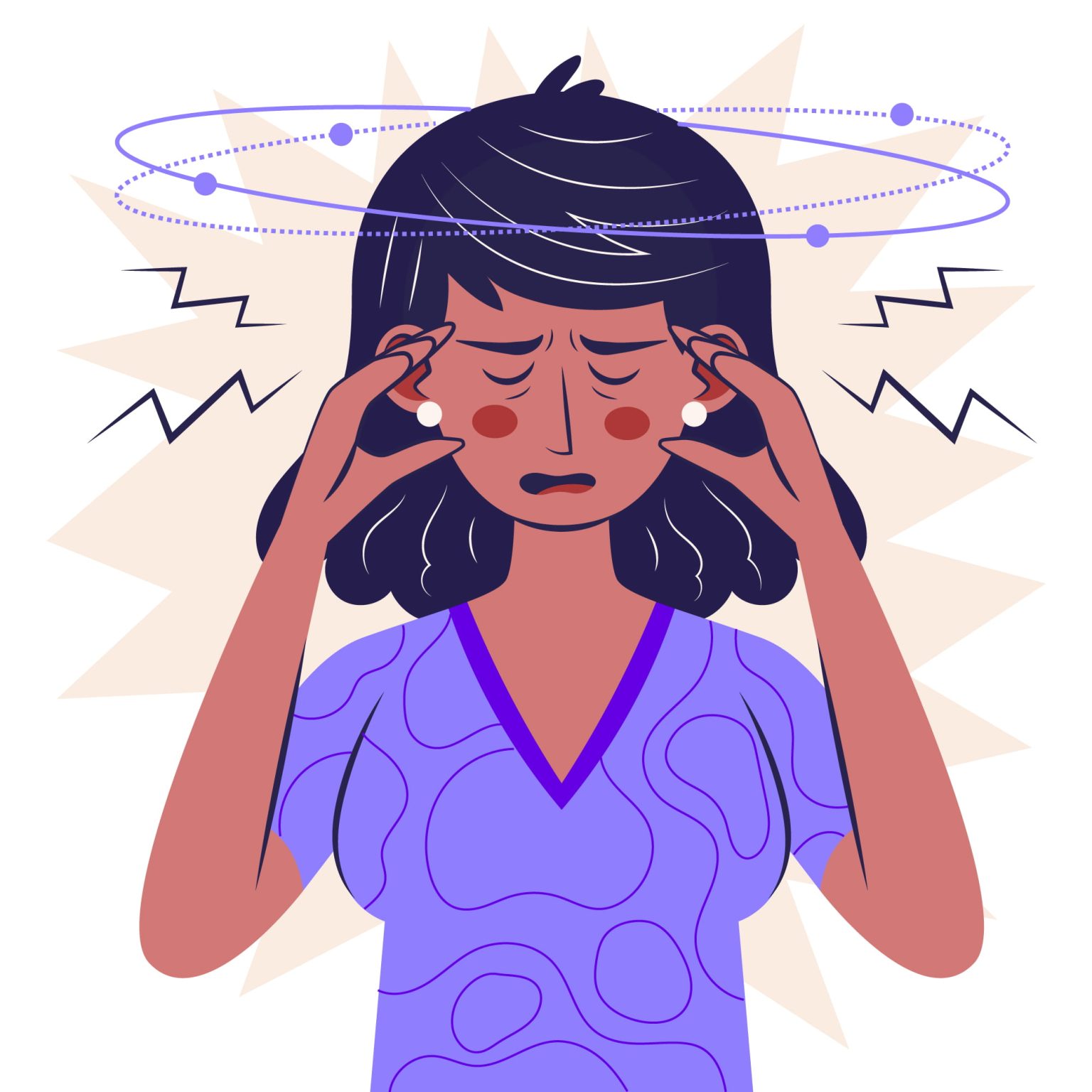Phone
+90 543 913 65 95
Visit Us Daily
Tekelioğlu Cad. 1947. Sk. No:29/3 Antalya
Associate Professor Sema Koç, ENT and Head and Neck Surgeon
+90 543 913 65 95
Tekelioğlu Cad. 1947. Sk. No:29/3 Antalya
Vertigo is when a person perceives objects around them as spinning or experiences the sensation that they are spinning. This condition is caused by a disturbance in the inner ear or the system in the brain that maintains balance. Vertigo is often confused with dizziness, but dizziness is a more general term and vertigo is a type of dizziness that is particularly intense.
Structural problems in the vestibular (balance) nerves or the inner ear can cause vertigo. Meniere's disease can cause an attack of vertigo associated with increased fluid pressure in the inner ear.
Benign paroxysmal positional vertigo (BPPV), caused by the displacement of small crystals in the inner ear, can cause sudden and severe vertigo attacks when shifting to certain head positions.
Injuries to the head and neck can affect the structures in the inner ear related to the balance system, leading to vertigo.
Some medicines, especially those that affect the inner ear or impair balance, can cause vertigo symptoms.
Vertigo can also occur during a migraine attack. This is sometimes referred to as migraine-related vertigo.
In rare cases, serious brain problems such as brain tumors or bleeding can cause vertigo symptoms.

Vertigo treatment varies depending on the underlying cause and severity. Here are some common approaches for vertigo management:
In the case of BPPV, healthcare professionals may perform the Epley maneuver to reposition the dislocated ear crystals. This maneuver is often effective in alleviating the vertigo associated with BPPV.
In cases where vertigo is caused by inflammation or infection, doctors may prescribe medications such as antihistamines, antiemetics (to control nausea and vomiting), or corticosteroids.
VRT is a type of physical therapy that focuses on improving balance and reducing dizziness. It involves specific exercises and maneuvers according to the individual’s condition.
In the case of Meniere’s disease, reducing salt intake and avoiding caffeine and alcohol can control fluid buildup in the inner ear. In some cases, diuretics may be prescribed to manage symptoms.
Individuals with vestibular migraine may benefit from preventive medications, lifestyle changes and stress management techniques to reduce the frequency and severity of vertigo attacks.
In rare cases when other treatments are ineffective, surgical interventions such as vestibular nerve cutting or surgery of the endolymphatic sac may be considered.
These exercises help the individual to adapt to the symptoms of vertigo, reducing their severity and frequency over time.
It is important to consult a health professional, preferably an otolaryngologist (otorhinolaryngologist) or neurologist, for an accurate diagnosis and appropriate treatment plan. Self-diagnosis and treatment can sometimes worsen the condition or lead to unnecessary delays in receiving effective care.
Vertigo can significantly affect a person’s quality of life, but many individuals find relief with appropriate treatments and lifestyle changes. With proper management, vertigo symptoms can often be minimized so that individuals can regain balance and take control of their lives.